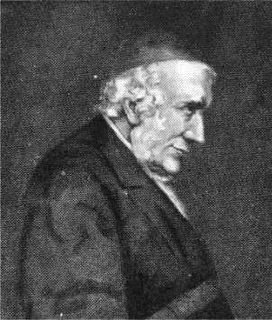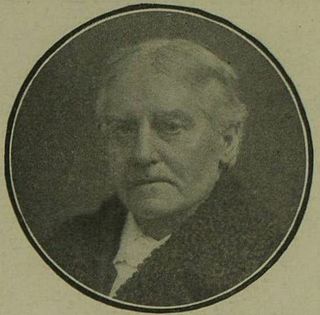Related Research Articles

The Anglican Communion is the third largest Christian communion after the Catholic Church and Eastern Orthodox Church. Founded in 1867 in London, the communion has more than 85 million members within the Church of England and other national and regional churches in full communion. The traditional origins of Anglican doctrine are summarised in the Thirty-nine Articles (1571). The Archbishop of Canterbury in England acts as a focus of unity, recognised as primus inter pares, but does not exercise authority in Anglican provinces outside of the Church of England. Most, but not all, member churches of the communion are the historic national or regional Anglican churches.

Anglicanism is a Western Christian tradition that has developed from the practices, liturgy, and identity of the Church of England following the English Reformation.

Edward White Benson was Archbishop of Canterbury from 1883 until his death. Prior to this, he was the first Bishop of Truro, serving from 1877 to 1883, and began construction of Truro Cathedral.

The Lambeth Conference is a decennial assembly of bishops of the Anglican Communion convened by the Archbishop of Canterbury. The first such conference took place at Lambeth in 1867.

Brooke Foss Westcott was a British bishop, biblical scholar and theologian, serving as Bishop of Durham from 1890 until his death. He is perhaps most known for co-editing The New Testament in the Original Greek in 1881.

The Oxford Movement was a movement of High Church members of the Church of England which eventually developed into Anglo-Catholicism. The movement, whose original devotees were mostly associated with the University of Oxford, argued for the reinstatement of some older Christian traditions of faith and their inclusion into Anglican liturgy and theology. They thought of Anglicanism as one of three branches of the "one holy, catholic, and apostolic" Christian church. By the 1840s many participants decided that the Anglican Church lacked grace, and converted to Roman Catholicism.

The Free Church of England (FCE) is an episcopal church based in England. The church was founded when a number of congregations separated from the established Church of England in the middle of the 19th century.
Christian socialism is a religious and political philosophy that blends Christianity and socialism, endorsing left-wing politics and socialist economics on the basis of the Bible and the teachings of Jesus of Nazareth. Many Christian socialists believe capitalism to be idolatrous and rooted in the sin of greed. Christian socialists identify the cause of social inequality to be the greed that they associate with capitalism. Christian socialism became a major movement in the United Kingdom beginning in the 19th century. The Christian Socialist Movement, known as Christians on the Left since 2013, is one formal group.

Baptists Together is an association of Baptist churches in England and Wales. The headquarters is in Didcot.

Randall Thomas Davidson, 1st Baron Davidson of Lambeth, was an Anglican priest who was Archbishop of Canterbury from 1903 to 1928. He was the longest-serving holder of the office since the Reformation, and also the first to retire from it.

Stewart Duckworth Headlam (1847–1924) was an English Anglican priest who was involved in frequent controversy in the final decades of the nineteenth century. Headlam was a pioneer and publicist of Christian socialism, on which he wrote a pamphlet for the Fabian Society, and a supporter of Georgism. He is noted for his role as the founder and warden of the Guild of St Matthew and for helping to bail Oscar Wilde from prison at the time of his trials.

Charles Gore was the Bishop of Oxford. He was one of the most influential Anglican theologians of the 19th century, helping reconcile the church to some aspects of biblical criticism and scientific discovery, while remaining Catholic in his interpretation of the faith and sacraments. Also known for his social action, Gore became an Anglican bishop and founded the monastic Community of the Resurrection as well as co-founded the Christian Social Union. He was the chaplain to Queen Victoria and King Edward VII.
The Anglican Church of India (ACI) is a union of independent Anglican churches in India. It is not currently a member of the worldwide Anglican Communion whose titular leader is the Archbishop of Canterbury.
William Dwight Porter Bliss (1856–1926) was an American Episcopal priest and one of the most famous and influential Christian socialists at the turn of 20th century. As a devout churchman, organizer, public speaker and an editor of numerous publications for over 40 years, Bliss became a central figure for the entire Christian socialist movement.

Percival Dearmer (1867–1936), known as Percy Dearmer, was an English priest and liturgist best known as the author of The Parson's Handbook, a liturgical manual for Anglican clergy, and as editor of The English Hymnal. A lifelong socialist, he was an early advocate of the public ministry of women and concerned with social justice. Dearmer, with Ralph Vaughan Williams and Martin Shaw, is credited with the revival and spread of traditional and medieval English musical forms. His ideas on patterns of worship have been linked to the Arts and Crafts Movement, while Dearmer and Vaughan Williams' English Hymnal reflects the influence both of artistic and folkloric scholarship and Christian Socialism. Dearmer ended his life as Canon of Westminster Abbey, from where he ran a canteen for the unemployed.

Julia Vida Dutton Scudder (1861–1954) was an American educator, writer, and welfare activist in the social gospel movement.

The original church penitentiary for the reclamation of fallen women was founded in 1806 in London. There most well known centre was set up by former British prime minister William Ewart Gladstone in 1848. Its aim was the convent-based rehabilitation of women, including prostitutes, thieves, the homeless, alcoholics etc. They were charitable organisations and not in place for the punishment of crimes.
Charles Latimer Marson was an influential figure in the second wave of Christian socialism in England in the 1880s. Later between 1903 and 1906 he collaborated with his good friend Cecil Sharp in the collection and publication of Folk Songs from Somerset vols. 1-3, which contributed greatly to the first British folk revival.

The Socialist Labour Party was a socialist political party in the United Kingdom. It was established in 1903 as a splinter from the Social Democratic Federation (SDF) by James Connolly, Neil Maclean and SDF members impressed with the politics of the American socialist Daniel De Leon, a Marxist theoretician and leading figure of the Socialist Labor Party of America. After decades of existence as a tiny organisation, the group was finally disbanded in 1980.

Elizabeth Garnett was a British missionary to navvies and an author. She was a founder and leading force of the Navvy Mission Society.
References
- ↑ Benson 1889, pp. 58, 72–73, 79.
- ↑ Woodworth 1903, p. 140.
- 1 2 3 4 5 6 7 8 9 Bliss & Binder 1908.
- 1 2 3 Woodworth 1903, p. 145.
- ↑ Woodworth 1903, pp. 140–141.
- ↑ Woodworth 1903, p. 136.
- ↑ Holland, Scott (1904). The Ground of Our Appeal. Oxford: Christian Social Union. Quoted in Bliss & Binder 1908.
- ↑ Downer 1898.
- ↑ "History". Industrial Christian Fellowship. Retrieved 12 November 2017.
- ↑ "History". Industrial Christian Fellowship. Retrieved 12 November 2017.